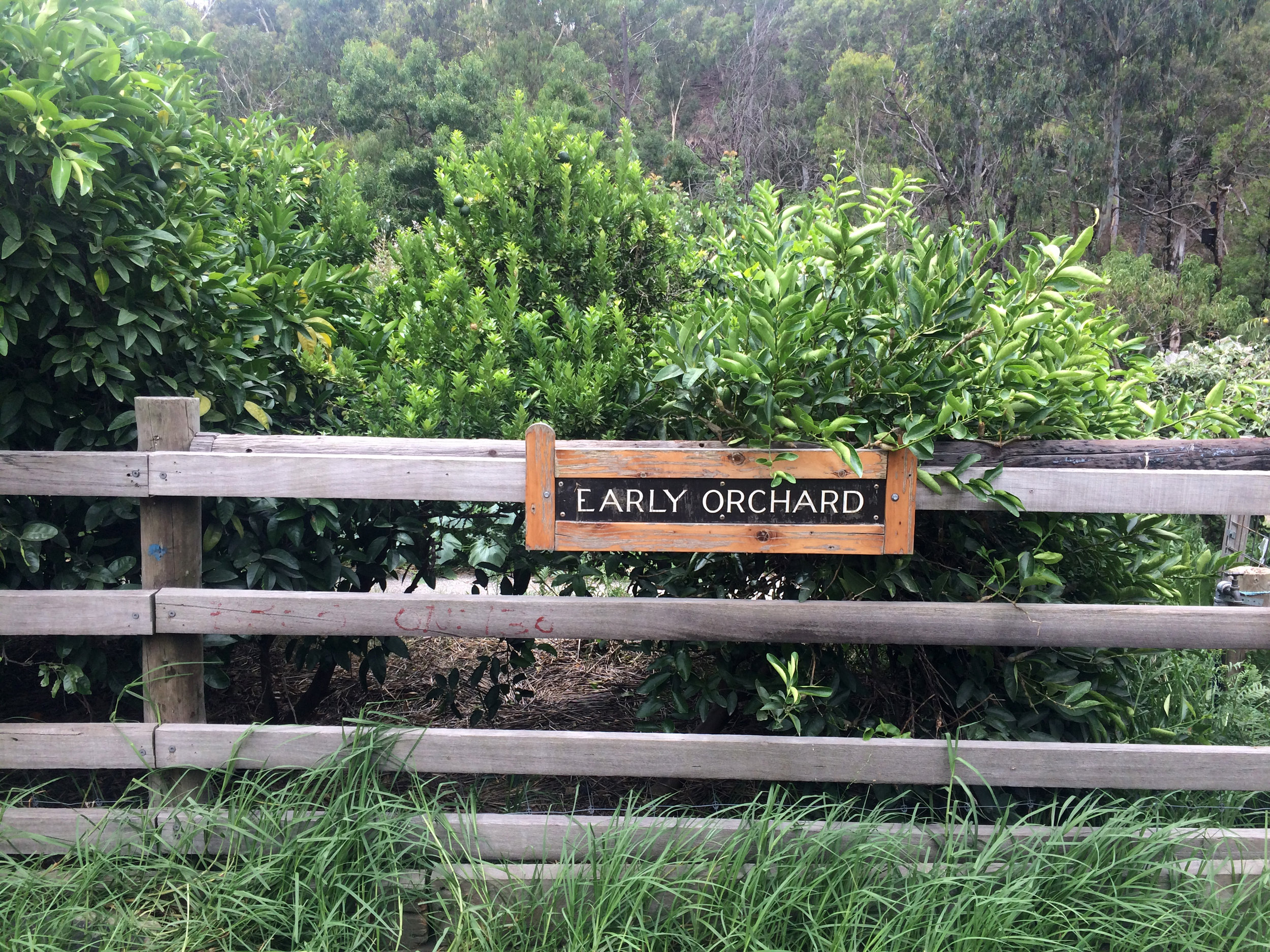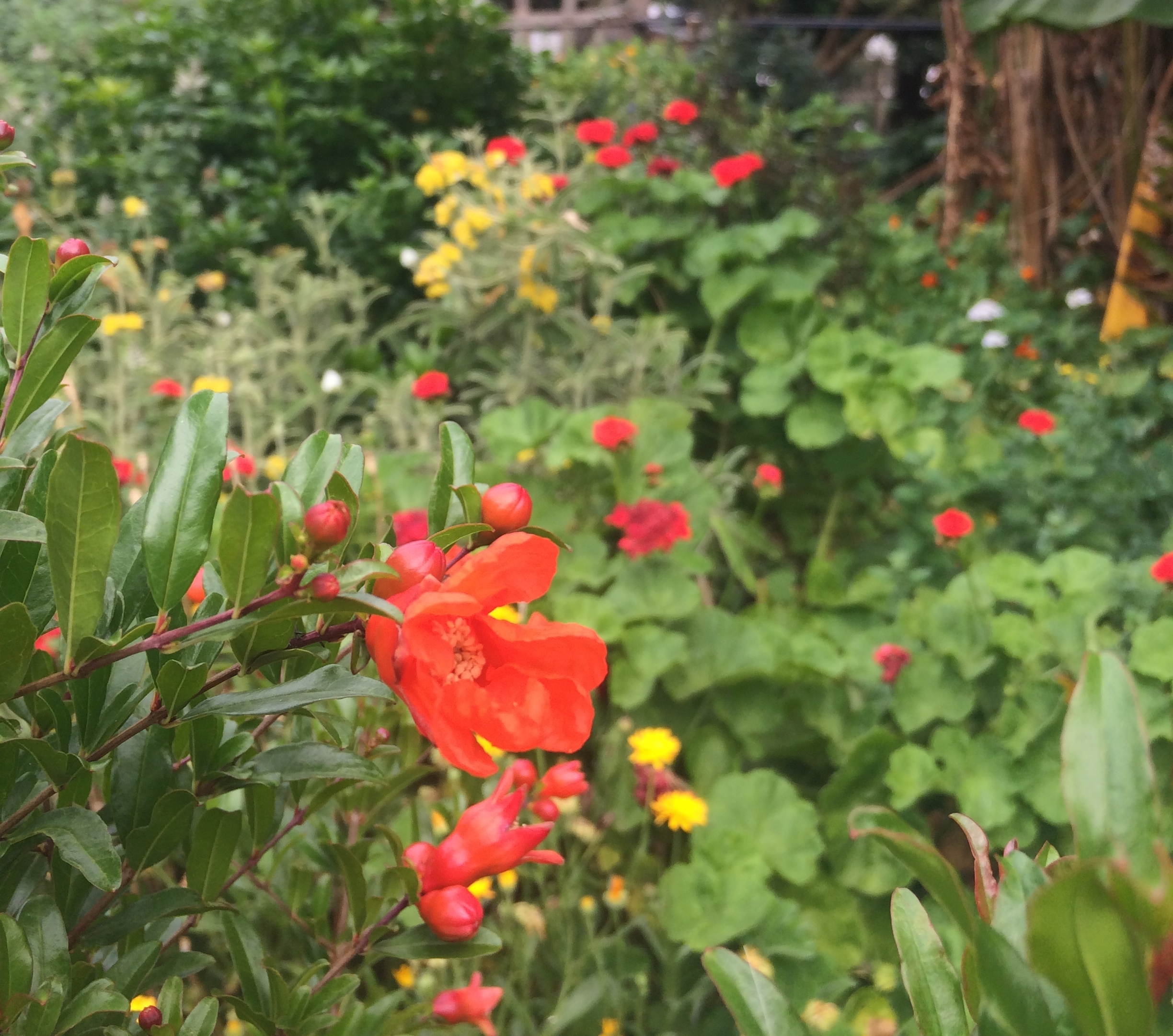Someplace Else in the City
Children freely meander along the winding trail that runs beside the tumbling banks of the Yarra River. They let their senses traverse them from one side of the path to the other. Up ahead a flock of ducklings follow the Mother duck, waddling down a grassy embankment towards the waters edge. A peacock appears, drawing much curiosity from the little ones admiring its sheen and colour. Giggles fill the air as the children peer over the fence to watch two snorting pigs delight in a mud bath. A stone’s throw away is a bustling streetscape. Smith Street Collingwood peers over the other side of the big block, but here at the farm, you could very well be someplace else.
For many years the Collingwood Children’s farm has been a magical place for children to explore. It is a beloved spot for adults too, a haven away from city living. The farm is home to a herd of goats, a gaggle of geese, guinea pigs, cows, donkeys, chooks, bees, earthworms and a few horses that enjoy nibbling hay off in the distance. Sustainability is a living and breathing concept at this place. Hens peck and gardeners tend to the plant life. Things move at a slower, patient pace. It is pleasant and enchanting. It is also an important educational sphere, sharing subtle and important teachings with the people who visit. Conor Hickey and her colleague Bridget Bainbridge work at the farm. They are both primary and secondary trained teachers with experience in special education, outdoor education and kinder aged education.
“We both understand the incredible importance of hands-on learning, alternative approaches to education (outside a classroom), nature-based play and the therapeutic outcomes of time spent in the garden or working with animals.”
Conor and Bridget are passionate about their work at the farm and continue to tend to its well-being on a daily basis. Over the years their experience and interests have led them to the children’s farm. Who better to talk to about the purpose of the farm and why it is a positive thing for us all.
What is the importance of nature play for young children? It is invaluable; the time to discover the outside and natural world at their own pace and in their own way. It educates children in so many essential ways such as self-reliance, problem solving, physics, and interpersonal skills to name a few. In the inner city, many children grow up with no outdoor space to explore, and the likelihood of children growing up with a very fractured or non-existent connection with the physical natural world is increasingly high, particularly when their parents don’t have a strong connection either. The research into the benefits of time spent in nature is many and varied and growing. Too much time is being spent indoors and/or on screens and the long-term effects of this are beginning to be documented and the outcomes are far from good.
What are the benefits of nature play for adults? How does it impact their well-being? Being the look out (supervising) adult with a group of kids in the natural environment and watching kids explore can be relaxing, interesting and rewarding. You can also learn a lot yourself, sometimes from the children’s discoveries but also by investigating yourself. To see a garden from a child’s perspective can be enlightening and has often taken us back to memories from our own childhood – make believe wonderlands with fairies in the flowers and elves in the treetops, rocks can talk and sticks are wands…. It’s fun to be transported into that lovely land of uninhibited imagination. We often receive feedback from parents that they think they get more out of a visit than their child! Adults get caught up in the day to day and often need their own time in nature to take some time out to breathe, appreciate the beauty of a sunlit tree, tranquil paddock or the calming cuddle of an animal.
What is it that you love about the Collingwood Children’s Farm? It is a place where you can let your kids wander and follow them, at their own pace, with their own interests. It is a rare place, in that the kids can be in charge of the journey- the adult’s job is to get them there, minimise risks, maybe make some suggestions, answer questions, supply food and drink. You don’t need to organise activities or really run to a time schedule. Take a coffee with you, and a book and a blanket. If kids get really involved in their play you might have time to use them! It’s also a great city escape – space to roam and breathe and time to slow down. The river is a beautiful backdrop; you can bring your own lunch and picnic under the trees or be spoilt by the delicious foods at the café. And what’s not to love about cuddling a guinea pig, patting a goat, milking a cow, feeding the ponies or marvelling at the magnificent peacocks? In addition to this, it’s an incredible educational tool. Our native gardens, produce gardens, orchards, worm farms, compost and variety of farm animals can springboard conversations about where our food comes from and why it is so important to look after our environment through sustainable practices.
Why is this space so vitally important to the local community? The farm was originally set up as a safe backyard for the local preteens and teens. A green space for city folk to escape to, work on and with. A space to learn about farming practices and gardening, sustainable living and community sharing. It still operates brilliantly in this capacity. Gardens, wild and domestic animals, trees, hiding spaces, bush land, hills and steep slopes for climbing, sand, puddles, the list of what to do with small children is endless, and changes with the seasons. Not only that, but the farm provides a large and growing number of opportunities for community involvement through projects, events, markets and school programs.
Why is green space an important part of city living? It keeps you in touch with the natural world, the seasons, the native wildlife, weather events. It connects you to the bigger natural world and anchors you to the space you inhabit. It gives you the space to take time out to slow down, relax, breathe and remember how good it is to not be staring at screen or rushing to a deadline. Everything slows down in nature. And we don’t just think so, SCIENCE SAYS SO!
Why is it important to educate children and adults about our environment? Essentially, people are animals, living in a very strangely constructed environment, both the built one and the cultural one. While mostly we cope fine with this, there is always a part of us that still yearns for quiet, slow, textural activity that is in proportion to our physical bodies, and interpersonal abilities. And you only need to look at the growing numbers of diagnosed illness and disorders to see that we’re becoming a society of increasing ill health. We have lost touch with where our food comes from, what’s seasonal, nutritious – everything is in packets, full of chemicals, processed, refined and wrapped in plastic. When we milk the cow and explain that 1) this is the same milk you buy in the shops and 2) this is what cheese and butter is made from, children (and even some adults!) can hardly believe their eyes and ears! The farm provides an opportunity to explore the paddock to plate process as well as sustainable living practices that can easily be adopted back at home.
Why is the Collingwood Children’s Farm a great place for playgroups to visit? It’s designed for kids and families, it’s close to the city, it’s cheap, it’s a large, open space for children to explore, run, find treasures, learn and PLAY in nature.
What do you enjoy most about the farm? Watching kids explore it and realise they have the ability to change it in some way and make it theirs. Watching kids squeal with delight or their gentle nature emerge when they pat or feed an animal for the first time. Watching kids drag their parents around to ‘look, look at the goat!’ or ‘come, come see the chicken’ or ‘help me find an egg!’…. It’s a wonderful, unique, historical gem and it’s so close to the city but you feel miles from anywhere…
Article and photography by Sinead Halliday








